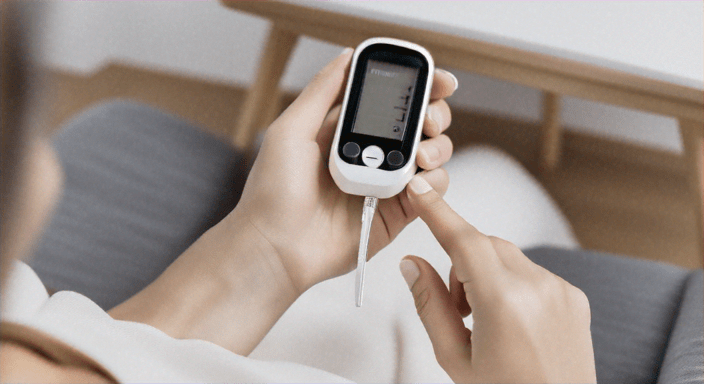Individuals diagnosed with diabetes, encompassing type 1, type 2, gestational diabetes, or other variations, typically require consistent monitoring of their blood sugar levels.

The American Diabetes Association (ADA) has recently revised its Standards of Care in Diabetes for 2024, incorporating the most recent scientific research and clinical trial outcomes.
1. Needle-Free Insulin: An innovative insulin formulation that eliminates the necessity for injections. This method employs minuscule particles to transport insulin into the body solely when blood sugar levels are elevated, thereby diminishing the likelihood of hypoglycemic episodes and obviating the need for injections.
2. Stem Cell Treatment for Type 1 Diabetes: This therapeutic approach utilizes stem cells to generate insulin-producing cells. These cells assist in regulating blood sugar levels, presenting a novel strategy for managing Type 1 diabetes.
3. Advanced Glucose Monitoring and Insulin Delivery System: Integrated devices such as the t:slim X2 insulin pump and FreeStyle Libre 2 Plus sensor facilitate continuous monitoring of blood sugar levels and deliver insulin as required, negating the constant need for finger pricks.
4. Updated Diabetes Care Guidelines: The American Diabetes Association has revised its guidelines to encompass new methodologies for managing obesity in diabetes, the utilization of novel drugs to delay the onset of Type 1 diabetes, and recommendations for leveraging technology to enhance diabetes care.
5. Smart Continuous Glucose Monitoring (CGM) Devices: These devices perpetually track blood sugar levels and transmit the data to your smartphone. This functionality aids in maintaining a vigilant oversight of glucose levels in real-time, rendering management more convenient and effective.
Advice for people with diabetes
-
Adhere to a nutritious diet: Consume a well-balanced diet abundant in fruits, vegetables, whole grains, lean proteins, and healthy fats.
-
Remain physically active: Participate in regular physical activity to assist in controlling blood sugar levels, enhancing insulin sensitivity, and sustaining a healthy weight.
-
Regularly monitor your blood sugar levels: Utilize a glucose monitor to check your blood sugar levels as frequently as advised by your healthcare provider.
It is important to remember that managing diabetes is a lifelong commitment, and encountering challenges along the way is normal. By adopting healthy habits, staying informed, and collaborating closely with your healthcare team, you can effectively live with diabetes and mitigate the risk of complications.





